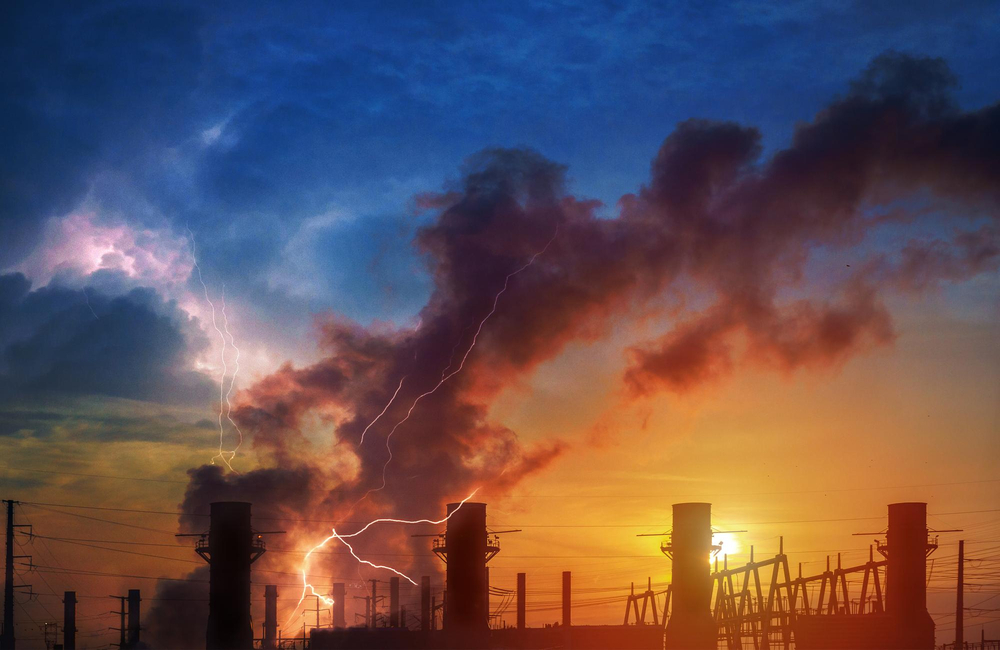But he is realistic enough to understand that the fun run isn’t sustainable, and an early threat is energy.
On the east coast, wholesale energy prices soared 600 percent over a matter of months while both businesses’ and households’ gas and utility bills continue to undergo double-digit percentage increases. Default retail energy prices rose by up to 18.3% from 1 July in NSW, 12.6% in south-east Queensland and 9.5% in South Australia. Wages are lagging behind inflation and interest rates are rising, so we can expect belt tightening throughout the economy.
Madeleine King is the new Resources Minister, and one of her first actions was to back WA's $16.5 billion Scarborough gas project. Gas, she said, has an “important role in the transition to a decarbonised world”. The Government would not back a ban on fossil fuel projects. The energy crisis is linked to the climate change discussion, including skepticism over whether renewables and other new sources can be brought online quickly enough to allow fossil-fired generators to be shuttered early. Mike Cannon-Brookes’ winning strategy for stopping the Power Asset Demerger at AGL is a project for the ages few can doubt the man’s persistence and positivity.
The percentage of Australia’s energy consumption that comes from renewables is disputed, with some data showing the number to be around 10%, as below. Others put it higher, but in any event, fossil fuels still rule.
While he was also careful to say that the election result was a clear indication of rising Australian focus on climate change, and that it had been the best ever election result for The Greens, the party leader Adam Bandt caveated:
“They need to get out of coal and gas but do so fairly.”
This softening of the message is significant, underscoring the so-called transition. Debby Blakely, Chief Executive of industry super fund, HESTA, a board investor in AGL, stated: “Shareholders are demanding more companies to move urgently towards a timely, just and orderly transition to a low carbon future.”
Terms like “fair” and “just” need to enter the conversation. This process will take a few years and fund managers should be more patient and factor poorer people and nations into this paradigm shift. Every week we have articles from fund managers at Firstlinks about ESG and divesting from fossil fuels, and banks are now refusing loans to fossil fuel companies. Faced with a young climate activist at the recent AFR Banking Summit, NAB CEO Ross McEwan claimed his bank no longer finances new coal, oil or gas projects. Some funds, including Blackstone (the world’s largest manager of alternative assets), have told clients that they will not invest in oil and gas exploration and production.
Against this background, it is refreshing to read when a top-tier fund manager GQG’s Rajiv Jain holds up the opposing hand, for the sake of balance in the debate. Not only is GQG re-weighting portfolios to 'energy' based on attractive-looking valuations, but Jain points to 'immoral' underfunding of fossil fuel industries. It’s a perspective that will rattle some but we have to reevaluate both sides of this transition which, in truth, will take decades.
This week we hear from Reece Birtles, CIO at Martin Currie Australia. He describes his methodology when creating sources of income derived from shares for retirees, with less concern on price behavior, and more concern on dividend reliability. It is also noteworthy that Birtles is a big AGL shareholder, and he opposes the demerger on the basis that:
“It will be a stronger company 10 years from now as a combined business.” The more that we can support that investment required in renewables, the better served the customer base and the ability to deliver a more reliable, sustainable energy supply.”
And my employer does take a strong view of the ESG policies of funds and companies it rates, including owning the Sustainalytics business, but there is obviously a spectrum of opinion. Peter Warnes, the Head of Equity Research, tells us we cannot afford to run before we can walk, citing Jeff Currie, the Global Head of Commodities Research at Goldman Sachs, who describes decarbonisation as "the replacement of the fuels that we currently use to do our manufacturing, the way we generate transportation and the way we heat and cool ourselves for the last 250 years." Peter asks:
“How do poor countries, which fossil fuels power their energy generation, finance the transition? Decades pass before a successful transition to zero emissions. Fossil fuels in fact are part of the transition process and will be needed to provide reliable and sustainable base load power well into the decades ahead.”
The other big challenge for the new Albanese Government, and especially for Treasurer Jim Chalmers and Finance Minister Katy Gallagher, is how to bring the budget deficit under control. There are pressures everywhere, from interest rates rising to make servicing $1 trillion of debt more expensive, more defence spending, more and rapidly rising costs in health, aged care, child care and disability services. Good luck reversing the legislated tax cuts which begin on 1 July 2024—it will be incredibly hard, if not politically impossible, to walk away from those but by 2030 they’ll cost a stonking $137 billion. Setting a flat corporation income tax rate of 30 percent for income earners between $45,000 and $200,000 would put as much as $9,000 into the pockets of high income earners. Meanwhile, the Reserve Bank is attempting to slow the economy and price increases. Chalmers breaks a promise that has been policy for many (if not most?) recipients likely no longer think the tax cut is inappropriate for the times?
And a quick comment on Albo. Anyone with a tweeting disposition hoping to put in a call to him via the tag @Albo can’t not know it belongs to an Italian adult comic artist and our Albo is contactable via @AlboMP.
Also squeeze in the time to read these articles in our jam-packed edition...
David Walsh goes on, supporting Reece Birtles’ arguments on why Value stocks have made a comeback of sorts to reach about half of what Growth stocks have gained over 2020 and 2021, with a few revealing charts.
Last week’s piece on democracy drew some 50 comments, many getting into the merit or otherwise of the preferential voting system. Actuary Tony Dillion has crunched all the numbers from the election and provides an interesting analysis of how our voting system affects the result. It might look like a simple design feature, but it decides who gets to form the government.
Jeremy Cooper is in a number-checking mood, too. Did you know 700 Australians retire every day? And that's a lot of superannuation, but according to Jeremy, many are forgoing a much smarter way to hold their retirement savings.
But after a close reading of the communications from the US Federal Reserve, the world’s most powerful central bank, Rudi Filapek-Vandyck says the oft heard saying to ‘not fight the Fed’ now has a whole new context that investors really need to get their heads around.
Finally, Jason Hsu, who along with his directorship as a portfolio manager, has held visiting professorships at multiple schools around Asia, offers a brief overview of three Investing 101 lessons he believes too many people ignore. His key message: If everyone knows, it’s already priced in.
This week, Vanguard has released a White Paper updating the numbers and rationale behind index investing. Though Vanguard is of course a champion of passive, it is also a big active manager, so this isn’t exactly a one-way street.
























